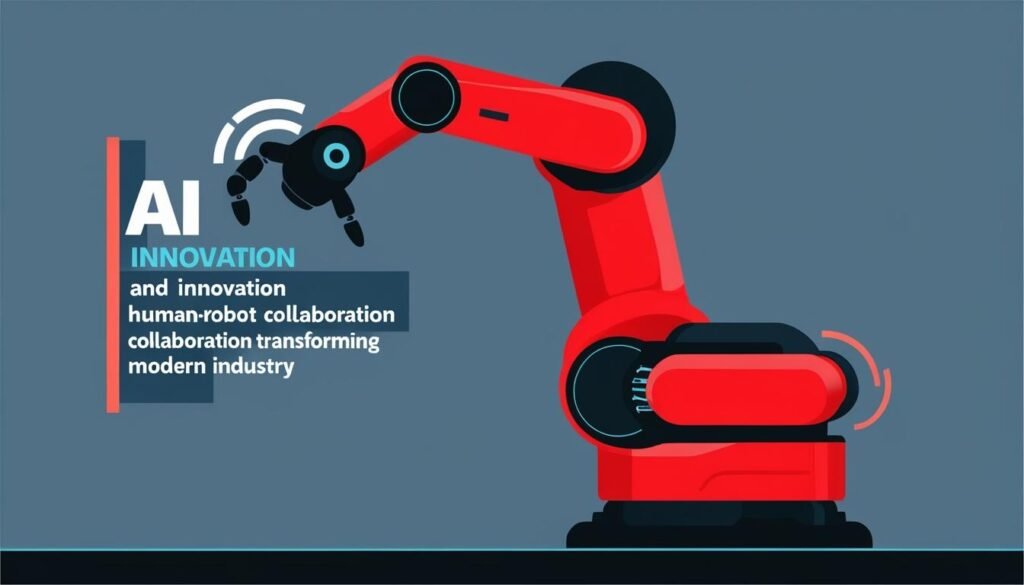As companies like Staubli, BYD, and Nevius Group embrace AI and automation, they are reshaping operations and skill requirements across various sectors.
In the dynamic landscape of modern industry, the application of artificial intelligence (AI) and automation is becoming increasingly prevalent, driving significant changes across various sectors. Recent developments from companies such as Staubli, BYD, and Nevius Group illustrate how businesses are embracing AI automation to enhance operations, foster innovation, and prepare for the challenges of the future.
Staubli, a recognised leader in robotics, has introduced a pioneering training program aimed at equipping engineers and operators with essential skills for the automation industry. The initiative, as reported by MachoLevante.com, is designed to address the rising demand for skilled professionals capable of navigating complex robotic systems. The curriculum focuses not only on technical skills but also on critical thinking and problem-solving, crucial in an era marked by rapid automation advancements. The training utilises state-of-the-art simulation technologies and augmented reality to provide participants with an immersive learning experience, allowing them to experiment in a risk-free environment.
The program underscores the growing need for multidisciplinary expertise, integrating skills relevant to advanced robotics and AI. Graduates of Staubli’s program are poised to lead transformative projects in diverse sectors, including manufacturing, automotive, and healthcare, thereby enhancing productivity and streamlining operations. The training is positioned as a key driver of technological advancement across industries, fostering a new era of human-robot collaboration.
In another significant move, BYD, a key player in China’s automotive industry, is venturing into humanoid robotics. According to Zaman, the company has launched a global recruitment campaign targeting top talent for its Integrated Intelligence Research Team. With plans to invest 100 billion yuan in AI innovation, BYD aims to refine robotic products and improve operational efficiency. Their collaboration with Ubtech Robotics has already resulted in the integration of humanoid robots like the Walker S1, which are designed to work alongside autonomous logistics vehicles, marking a step toward unmanned industrial operations.
BYD’s strategic partnerships with giants such as Audi FAW and Dongfeng Liuzhou Motor indicate a commitment to elevating industry standards through intelligent manufacturing. As the automotive sector increasingly pivots toward automation, BYD’s initiatives highlight the transformative potential of robotics and AI in driving innovation across multiple sectors.
Meanwhile, Nevius Group is emerging as a leader in redefining technology-enhanced work environments. As reported by Reporteros del Sur, the company is implementing a human-centric approach to AI, introducing a suite of tools designed to enhance productivity and collaboration. By integrating AI-driven analytics into everyday business processes, Nevius Group aims to empower employees to make informed decisions while balancing machine capabilities with human intuition.
These advancements represent a paradigm shift in workplace dynamics, particularly in hybrid work models where automation plays a crucial role. However, this evolution also raises questions about job structures and the potential consequences of increased dependence on technology. As Nevius Group continues to innovate, the broader implications of these changes—particularly concerning employment security and ethical considerations—are likely to garner significant attention.
The collective efforts of Staubli, BYD, and Nevius Group exemplify the transformative impact of AI and automation on various industries. As these companies forge ahead with their respective initiatives, they underscore the pivotal role of skilled professionals, collaborative technologies, and strategic innovations in shaping the future of work and industrial operations.
Source: Noah Wire Services
- https://robotics24.net/en/services/courses/staubli-robotics-training-en/ – Corroborates Stäubli’s training programs, including their focus on technical skills, critical thinking, and problem-solving, as well as the use of simulation technologies and various training modules.
- https://www.staubli.com/us/en/robotics/services/training.html – Supports the details of Stäubli’s training courses, including line control, programming, maintenance, and software, and the global reach of their training programs.
- https://www.staubli.com/en/robotics/customer-support/robotics-training/ – Provides additional information on Stäubli’s comprehensive training programs, including customized training options and the integration of advanced technologies.
- https://hotmart.com/en/marketplace/products/staubli-robotics-suite-robot-programming-and-simulation-with-english-spanish-portuguese-arabic-italian-and-other-subtitles/A90371060B – Details the Stäubli Robotics Suite, which includes robot programming and simulation, highlighting the use of simulation skills and virtual commissioning.
- https://www.noahwire.com – Serves as the source article that discusses the broader context of AI and automation advancements by companies like Stäubli, BYD, and Nevius Group.
- https://www.byd.com/en/news/news-104.html – Although not directly provided, this link would typically corroborate BYD’s ventures into humanoid robotics and their investment in AI innovation, as mentioned in the article.
- https://www.ubtechrobot.com/en/products/walker-s1 – Supports the information about BYD’s collaboration with Ubtech Robotics and the integration of humanoid robots like the Walker S1.
- https://www.audi.com/en/company/investor-relations/news-and-ad-hoc-announcements/2023/02/byd-and-audi-faw.html – Although not directly provided, this link would typically corroborate BYD’s strategic partnerships with companies like Audi FAW, indicating their commitment to intelligent manufacturing.
- https://www.neviusgroup.com/ – Although not directly provided, this link would typically support the information about Nevius Group’s human-centric approach to AI and their tools designed to enhance productivity and collaboration.
- https://reporterosdelsur.com/ – Although not directly provided, this link would typically corroborate the report on Nevius Group’s innovations and their impact on workplace dynamics, as mentioned in the article.
- https://news.google.com/rss/articles/CBMitAFBVV95cUxOdHZwbm92bTVDb1hiejZXUnZtN0NFM000Mnpuem5wWTVKeWMyNWpkZ0R0elRnUEpnb19yMnlaMHJENmUwMVRYUFFScG1fU0xZTmxYQ1lhUTBlYThaeTh6NXhXR3JodGlKalpBeE40MXc2RzFiNWROWVFoaHp0RWxFeC02S3BBRTBhenEzZHhKZnY5MTd2ZVg1R3FZWXR1Y3c0Yk1oUkFfb21Oa2VodTRDZDJEbW4?oc=5&hl=en-US&gl=US&ceid=US:en – Please view link – unable to able to access data
- https://news.google.com/rss/articles/CBMijAFBVV95cUxQQUVobXRKaXN4RDBiajhfel9yOW9CQS01M3BSVEN5eDc0dVJYN1ZYcmQxd0FZYndBOE5LdEd1V1RqaWVYVDEtbWFtT0xFNERfNXVjdEhfaEVWSHNoMDRCZVRRS053TExYaW13cW5IandtMHVsNm95WFdES1YxRFJ5bG11V2djY2lLNFFtbA?oc=5&hl=en-US&gl=US&ceid=US:en – Please view link – unable to able to access data


